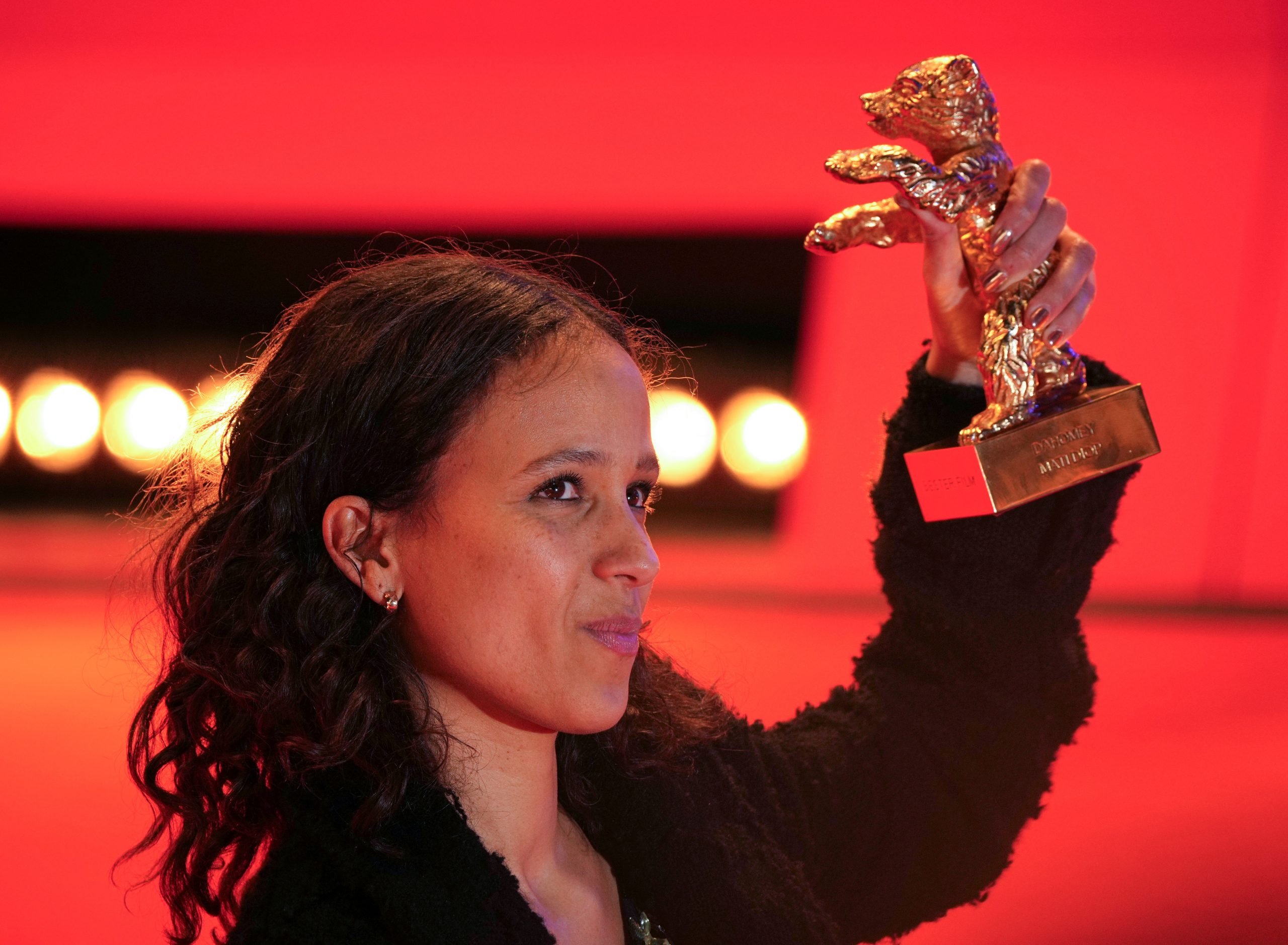
Mati Diop has been awarded the Golden Bear at the 2024 Berlin International Film Festival for her documentary Dahomey. The film tackles themes of colonialism and details the 2021 return of 26 artifacts to the Republic of Benin, which had been plundered by French colonial powers in 1892.
Thousands of objects were removed by the French from the Kingdom of Dahomey, which existed in West Africa for around 300 years, from 1600. The film comes at a time when many European museums are being pressured to return looted treasures. In the past three years, institutions in the UK, Germany, and the US have begun to repatriate Benin Bronzes.
Still from Dahomey by Mati Diop. © Les Films du Bal – Fanta Sy.
On February 24, Diop became the first-ever Black director to win the festival’s top prize. The jury of the 74th edition of the festival, led by the actor Lupita Nyong’o (the competition’s first Black presiding judge) awarded the Golden Bear to the French-Senegalese filmmaker who has previously won the Grand Prix at the 2019 Cannes Film Festival for her film Atlantics.
Documentaries have won the coveted Golden Bear for the last two years. The 2023 prize was won by Nicholas Philbert’s On the Adamant, which examined a Parisian mental health care facility.
During the press conference for Dahomey, Diop said “I have been working on films like this for about 10 years now. The restitution of works of art in a tangible sense, handed back by France—it took me a very long to become fully aware of what it really signified. That’s one of the reasons why I am a filmmaker. I want to make it possible for people to understand these issues”.
The documentary followed the hoard of objects on their journey from Paris to Benin, and documents the celebrations in Cotonou to mark their return. The film is narrated from the point of view of a looted artifact, and by the zoomorphic character of King Ghezo, the ruler of Dahomey between 1797 and 1818.
Gildas Adannou, Mati Diop, Habib Ahandessi, and Joséa Guedje at the “Dahomey” premiere during the 74th Berlinale International Film Festival on February 18, 2024 in Berlin, Germany. Photo by Sebastian Reuter/Getty Images.
Regarding the treasures’ return in 2021, Diop said that they were “way too few compared with the 7,000 works that are still held captive in these museums. These 26 works are good but are not enough, and I certainly think that it is humiliating […] France has exploited this place for centuries”.
Dahomey, at 67-minutes running time, is the festival’s shortest Golden Bear-winning film since its very first winner, James Algar’s In Beaver Valley in 1951. Some have criticised the jury for snubbing Maryam Moqadam and Behtash Sanaeeha’s My Favourite Cake for the prize, given that the film had been highly praised by critics.
In her acceptance speech, Diop said: “To restitute is to do justice […] we can either get rid of the past as an unpleasant burden that only hinders our evolution, or we can take the responsibility and use it as the basis for moving forward. We have to choose.” She dedicated the award to “all the women and the men who have paved the way”